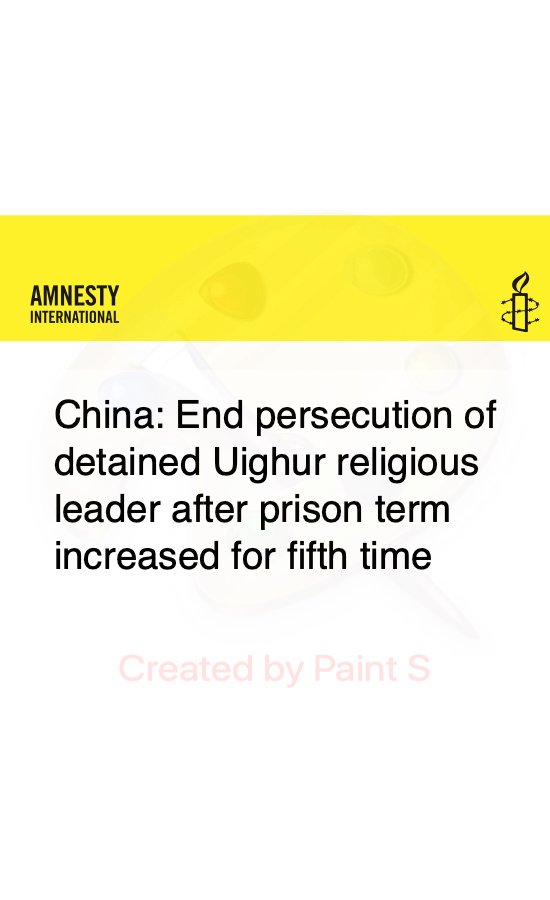
China: End persecution of detained Uighur religious leader after prison term increased for fifth time
The relentless persecution of an ethnic Uighur religious leader must stop, said Amnesty International, as it called on the Chinese authorities to disclose why Abdukiram Abduveli’s prison term has been increased for a fifth time.Abdukiram Abduveli, 59, has now served double his original 12-year sentence. According to his family, he has been on hunger strike since mid-February in protest against an additional five-year jail term.
“The Chinese authorities appear to be singling out Abdukiram Abduveli for his refusal to stop practicing his religion. The authorities must immediately explain on what grounds they are continuing to imprison him,” said Anu Kultalahti, China Researcher at Amnesty International.
“This seems to be another extreme case of persecution against ethnic Uighurs at the hands of the Chinese authorities.”
According to his family, Abdukiram Abduveli is now critically ill after more than 60 days on hunger strike.
“The authorities must ensure Abdukiram Abduveli receives immediate and adequate medical care,” said Anu Kultalahti.
Before he was detained in 1990, Abdukiram Abduveli had travelled within the Xinjiang Uighur Autonomous Region in northwest China preaching the Qu’ran and advocating the spread of Islam.
In 1993, he was sentenced to 12 years in prison for “organizing a counter-revolutionary group” and “carrying out counter-revolutionary propaganda and “inciting the overthrow of political power”.
On his scheduled release in November 2002, prison guards told his family that his sentence had been extended by three years. They were told this on three more occasions in 2005, 2008 and 2011.
The family has received a written court verdict explaining the additional prison sentences only once. The verdict in 2009 stated Abdukiram Abduveli consistently refused to accept prison education, prayed on several occasions, announced a hunger strike, as well as swore at and hit his supervising inmates.
The practice of using prisoners to monitor and carry out “thought work” or “re-education”, and sometimes to punish or torture other inmates, is common in Chinese prisons.
Ethnic Uighurs face restrictions on religious freedoms, employment discrimination and political marginalization. This has fuelled ethnic tensions in Xinjiang region and there have been several violent clashes between Uighurs and security forces in recent years.
